David Ryan started young.
In many different interviews, David’s talked about how it all began at the dinner table for him. In the late 60s, his dad bought stocks for a college fund, including KFC and Disney (so he was good at identifying themes!), and discussed them with his family.
David also remembers his dad getting The Wall Street Journal — newspapers were the only place he could get quotes at the time — and 13-year-old David went through the stock tables in them, looking for a $1 stock, so that he could buy it.
However, his father said that it didn’t work that way. David had to first do some research to figure out what companies are doing well before committing to a purchase.
So, a few days later, David was looking through The Wall Street Journal again, and saw an article on Ward Foods, which made Bit-O-Honey and Chunky candy bars. As a fan, that seemed the perfect investment.
David then bought the candy maker stock, which lost him money (due to the bear market at the time), but it got David started. He was fascinated with why his stock went down when others were going up.
Skipping ahead, aged 16 or 17, David had a trial subscription to Daily Graphs (the precursor to Investor’s Business Daily) and Value Line, which fascinated him.
Curiosity: a vital edge
This in-born interest, particularly at such a young age, obviously really helped David. As he put it himself, he felt that God was guiding him. Regardless, such natural curiosity is clearly a huge edge, no matter what you’re looking to pursue.
As you can probably imagine, I follow writers as well as traders. One newsletter I particularly like is Kieran Drew’s, who regularly points out that curiosity will always beat competence, and having both makes for an unbeatable combination.
“curiosity will always beat competence, and having both makes for an unbeatable combination”
Allow me to explain in my own words.
If you want to get good — really good — at anything, it’s going to take practice. A lot of practice. In turn, that takes consistency and time.
Mere competence could probably see you do an acceptable job in a regular 9–5. But if you’re not curious, you’re not going to put in any extra effort — certainly not over the long term.
To reach the top in your field — which any consistently profitable trader would be — you need that curiosity. That curiosity ensures that you can enjoy the long journey, and stick with it even when things aren’t going well. Genuine curiosity will also lead to competence, as you put in the work required.
Then, as you acquire the competence and continue to be curious, you’ll become an unstoppable force.
As Mark Minervini says:
“First you get the skill, then you get the money.”
Got a problem? Find a solution!
Coming back to David, after he graduated from the University of California (UCLA), he worked on the floor of the Pacific Coast Stock Exchange as a runner. He hoped that, after a few months, he’d be picked up by someone as an assistant to learn how to trade, but that never happened.
I know too many people in an equivalent situation who would moan about it without taking any real action to find a solution. (Also see this stack.)
Not David.
He then tried to get a job at the company he was already getting products from — Daily Graphs (now Investor’s Business Daily). To the receptionist, he said that he was prepared to do anything — even work for free.
As it turned out, he had an interview with William O’Neil the next day, and landed a part-time job. He got a foot in the door. (That job evolved into a full-time role, and he ended up spending nearly 17 years in the company.)
David then used that opportunity to really study what the company was doing. He spent lots of time going through the company’s books of stock recommendations — what they were, when they were added, and when they were taken out — in the evenings and on weekends, until he started doing much better in the markets himself.
The power of journaling
However, what David describes as his biggest learning experience was studying his own mistakes. (I’ve talked a lot about journaling too, and how that led to some key discoveries for me.)
In 1982, David had an account of around $30,000. The market exploded in August 1982, and he ran that account up to $52,000. (This was just an effect of the bull market — not because he had any real skill then.) The market then turned, and David’s account went down to $16,000.
In other words, he blew up.
(I don’t think people actually need to lose every last cent to learn their lesson — just suffer big enough losses for it to really hurt. I learned mine in a similar way to David: by giving back a substantial portion of some very good gains. But I never got into any real trouble, partly through the good fortune of coming across Mark Minervini’s books and, by extension, risk management lessons early in my trading journey.)
Following that experience, David took a weekend to sit down and study every single trade he made. What was he doing wrong?
It turned out that he’d been repeatedly buying stocks that were extended. In other words, they’d moved too far out of their bases to offer favourable risk-to-reward — a mistake you may be able to get away with in a roaring bull market, but not in weaker market conditions.
The turning point: determined to be disciplined
Upon realising his mistake, David said:
“OK. I’m only going to buy exactly at the buy point — exactly where the stock was coming out into new highs, or above the majority of the base. I’m going to look for the right characteristics. And from that point on, […] very shortly after that, I get my first great winner. […]
“So I had a great win out of that, and then […] I was so focused, I wasn’t buying pullbacks, I wasn’t buying extended stocks, I was buying exactly right. I didn’t care what the rest of the market looked like, and so I was buying one setup, and one setup only. And that’s where I just started hitting one after another after another. […]
“[If] you try to do a number of different things — you try to buy breakouts and pullbacks and all sorts of different things, or you start mixing styles, that’s where you can get into trouble. You’re just trying to simplify the whole thing.”
Both examples clearly show David’s problem-solving mindset, which is obviously essential to achieving success like his.
We all need to make the most of the hand we’re dealt. There are always things that are outside of our control. But if we just focus on the things we can control, we have so much more opportunity than we think. Not to mention how this makes for a much happier life!
Love your work
David considers the market so much fun — in his own words, a ‘treasure hunt’. Here is a snippet from Jack Schwager’s Market Wizards: Interviews with Top Traders, which I’ve shared before:
“Although most of the traders I interviewed have a love for trading, none have the unbridled enthusiasm demonstrated by Ryan. To Ryan, the whole process of stock selection is like a terrific game—a treasure hunt as he describes it—and he still can’t believe he is getting paid to do it.
“[…] I suspect that as long as [Ryan] was supplied with his charts and computer runs, he would probably be content to work in a hall closet.”
This aligns to what David said in a TraderLion interview, in response to Richard Moglen commenting that his first stock purchase (Ward Foods) is a genesis of the concept that you need to look at the world around you to get stock ideas, as it’s often the products we use ourselves that end up being the true market leaders.
David responded:
“I think people make the market so complicated. It really comes down to two things.
“One, what are you doing with your life? What are you buying? Where are you eating out? Where [are] your restaurants? What car do you drive? What phone do you use? What are your friends talking about?
“And then just matching up those concepts with some rules. Is the stock in an uptrend? Does it have good earnings?
“You combine those two things, and then also have some sell rules, and you should be able to find some very, very good stocks.
“Because just think of it: you’re going to be trying to find the best product with the best price, or the best service at the best price, and millions of other people are probably very similar to you, and they’ll be doing the same thing. So you’re going to be finding some great names, and as long as the tax structure rewards innovation and entrepreneurship, these companies are just going to keep on coming.”
The whole thing is “like a game”! What’s going to be the next concept, the company that’s going to do really, really well? This ‘treasure hunt’ is why the stock market is so much fun to David.
Whether or not David’s love for trading is at another level to other traders, having genuine passion for whatever it is that you do — trading or otherwise — is an obvious key to reaching the top. Without it, you’re unlikely to put in the work and hours required to achieve that sort of level. This is evident from any successful trader, as well as top performers in other fields.
So, if you only take away one thing from this stack, it should be this:
Curiosity wins. Make work so fun that it barely feels like work to you.
More David Ryan stacks
I hope you enjoyed the second part of my David Ryan series. Here are my other stacks on David to date:
If you want to receive future stacks like this straight to your inbox, please subscribe. It’s free!




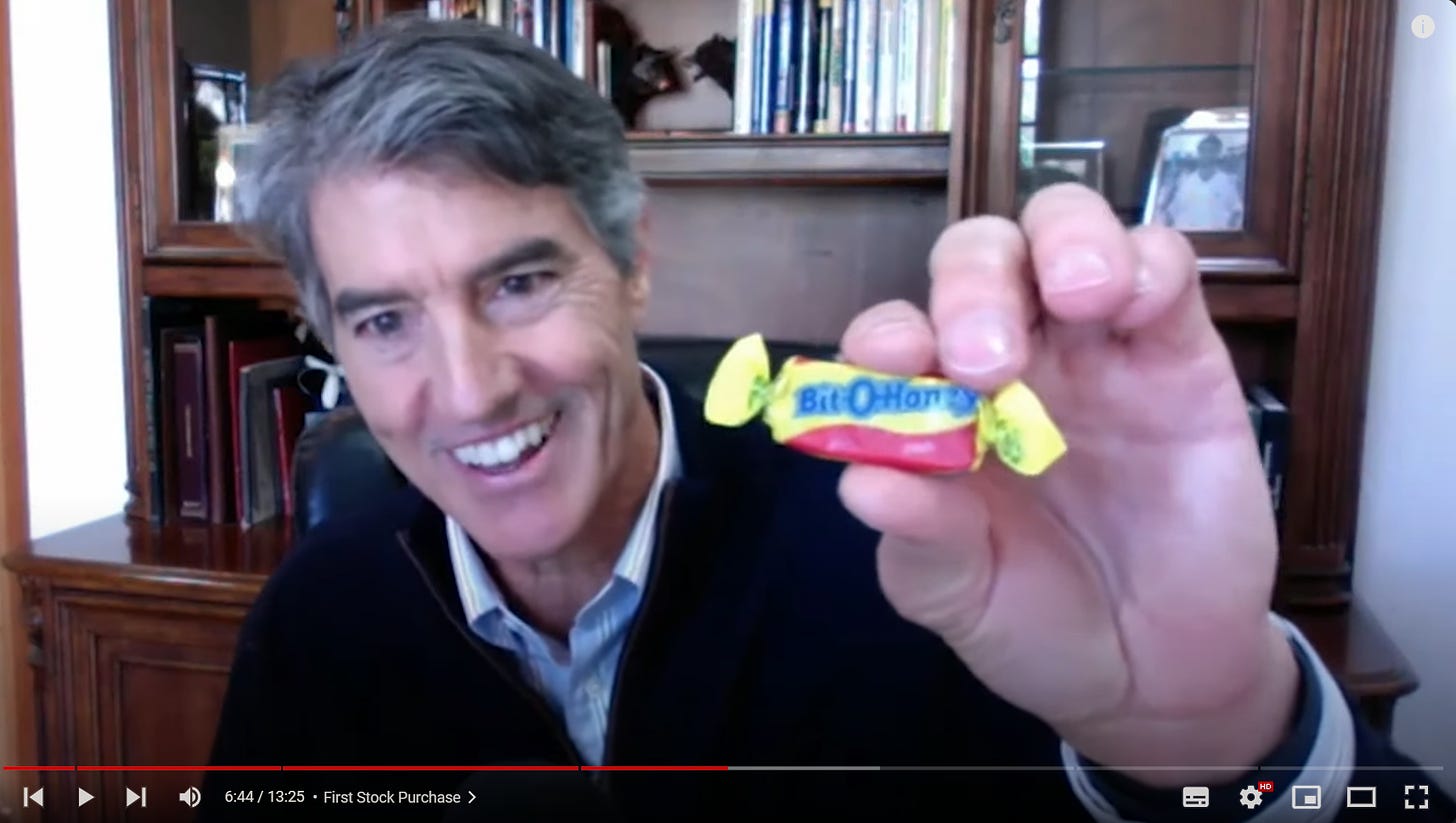

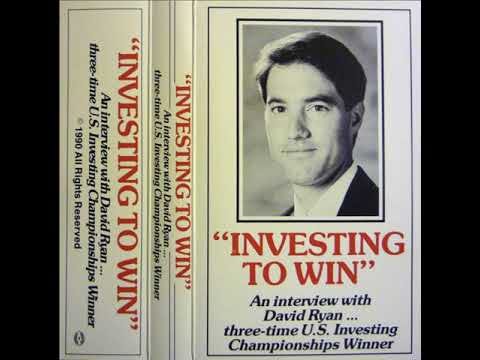





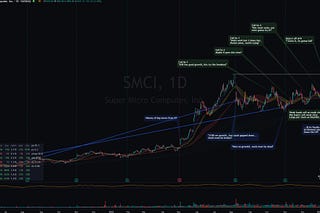
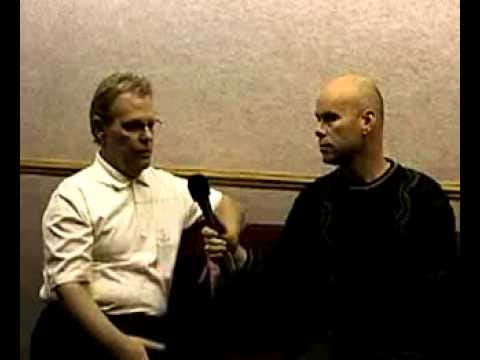

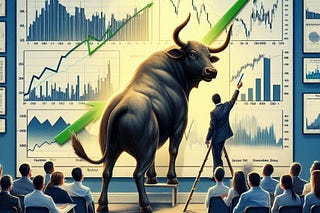
Great articles, thank you for your time and effort!
Thank you